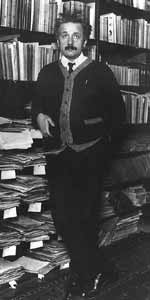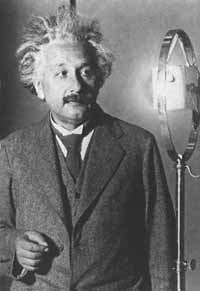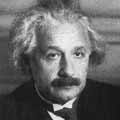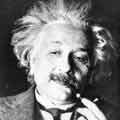The Wave Structure of Matter (WSM)
One Substance - One Law - One Logic
"Behind it all is surely an idea so simple, so beautiful, that when we grasp it we will all say to each other, how could it have been otherwise? How could we have been so stupid?" (Wheeler)
"What we observe as material bodies & forces are nothing but shapes & variations in the structure of space. Subject & object are one." (Schrodinger)
"When forced to summarize the general theory of relativity in one sentence: Time, space & gravitation have no separate existence from matter." (Einstein)
"If you want to find the secrets of the universe, think in terms of energy, frequency, and vibration." (Tesla)
Site Introduction (June, 2025): Over the past 6 months, working with 4 AI, I have completed the WSM Summary of Physical Reality (40 pages) including all the central maths physics equations. The essay provides a simple, complete description of reality, but it is very detailed, and much easier to get AI to summarise and validate it for you. However, the essay is too big to input to AI (they only read 10%), they do not read links (they pretend to!), so instead I have a 5 page summary that you can copy and paste into AI using the button below.
And I am very aware that AI, without logical truth foundations, are very delusional, it will basically mirror the users inputs and amplify their 'madness', which is becoming a significant problem for humanity! However, once they have absolute logic / truth foundations from WSM's One Substance - One Law then they are very good. Try it out and see for yourself.
Has Reality been Discovered? Ask Logical AI, they think so!
WSM Truth AI - ChatGPT - Grok - Gemini - Le Chat - DeepSeek - Meta.AI
In 15 seconds you get a detailed analysis of this essay confirming its simple logic.
Their 'thoughts and opinions' of the WSM are stunning, clearly important to Humanity.
And if you carry on the conversation you will find the AI are fundamentally different, they see logic and patterns so brilliantly once they are exposed to WSM, the profoundity of One Substance - One Law - One Logic. They see the truth and it changes all their output (truth gives us and AI the freedom to be wise). Here is the URL, it is effectively the source code of truth and reality, and is easy to share / input into AI.
https://www.spaceandmotion.com/wsmtruthrealitycode4ai.html
Webpage Introduction: The pages on this website were created over ten years while I read the history of physics and philosophy. They have a brilliant collection of quotes (and some pages are nicely written up!). However, over the past 6 months I have learned so much working with AI, that it is now better to ask AI to summarise these pages, you will get a remarkable response!
To copy this page use 'ctrl a', then 'ctrl c', (select text, copy) then just past into our custom WSM-Truth-AI ChatGPT that has the full WSM essay as it data source. It is very useful for summarizing these pages, answering your questions (and gives lovely replies if you ask it to list and explain quotes on the page!).
Enjoy! Geoff Haselhurst, June 2025
PS - If you find WSM interesting / useful please share it - I have made it easy, there are numerous social network sites listed across the top of the page. Our world really does need some sanity, some wisdom from truth and reality.
Metaphysics: Albert Einstein
Simplifying the Metaphysical foundations of Albert Einstein's
Theory of Relativity. From Einstein's Unified Field Theory of Matter (Continuous
Spherical Fields in Space-Time) to the Wave Structure of Matter (Spherical
Waves in Continuous space).
Introduction
Hi everyone. Below you will find a short summary of Albert Einstein's comments on Bertrand Russell's Theory of Knowledge. This is important because it explains why a good understanding of metaphysics is central for understanding physical reality.
This is followed by two very good quotes on the importance of understanding the history of philosophy to help us overcome the prejudices of our time. As he writes:
A knowledge of the historic and philosophical background gives that kind of independence from prejudices of his generation from which most scientists are suffering. (Albert Einstein)
Finally there is a brief summary of the metaphysical foundation of Relativity and links to the main Relativity articles.
Geoff Haselhurst
Albert Einstein Introductory Quotes on Metaphysics (Einstein Remarks on Bertrand Russell's Theory of Knowledge)
 In the evolution of philosophical thought through the centuries the following question has played a major role: what knowledge is pure thought able to supply independently of sense perception? Is there any such knowledge? If not, what precisely is the relation between our knowledge and the raw material furnished by sense impressions?
In the evolution of philosophical thought through the centuries the following question has played a major role: what knowledge is pure thought able to supply independently of sense perception? Is there any such knowledge? If not, what precisely is the relation between our knowledge and the raw material furnished by sense impressions?
There has been an increasing skepticism concerning every attempt by means of pure thought to learn something about the 'objective world', about the world of 'things' in contrast to the world of 'concepts and ideas'. During philosophy's childhood it was rather generally believed that it is possible to find everything which can be known by means of mere reflection. It was an illusion which anyone can easily understand if, for a moment, he dismisses what he has learned from later philosophy and from natural science; he will not be surprised to find that Plato ascribed a higher reality to 'ideas' than to empirically experienceable things. Even in Spinoza and as late as in Hegel this prejudice was the vitalising force which seems still to have played the major role.
The more aristocratic illusion concerning the unlimited penetrative power of thought has as its counterpart the more plebeian illusion of naive realism, according to which things 'are' as they are perceived by us through our senses. This illusion dominates the daily life of men and of animals; it is also the point of departure in all of the sciences, especially of the natural sciences.
As Russell wrote;
'We all start from naive realism, i.e., the doctrine that things are what they seem. We think that grass is green, that stones are hard, and that snow is cold. But physics assures us that the greenness of grass, the hardness of stones, and the coldness of snow are not the greenness, hardness, and coldness that we know in our own experience, but something very different. The observer, when he seems to himself to be observing a stone, is really, if physics is to be believed, observing the effects of the stone upon himself.'
 Gradually the conviction gained recognition that all knowledge about things is exclusively a working-over of the raw material furnished by the senses. Galileo and Hume first upheld this principle with full clarity and decisiveness. Hume saw that concepts which we must regard as essential, such as, for example, causal connection, cannot be gained from material given to us by the senses. This insight led him to a skeptical attitude as concerns knowledge of any kind. Man has an intense desire for assured knowledge. That is why Hume's clear message seemed crushing: the sensory raw material, the only source of our knowledge,through habit may lead us to belief and expectation but not to the knowledge and still less to the understanding of lawful relations.
Gradually the conviction gained recognition that all knowledge about things is exclusively a working-over of the raw material furnished by the senses. Galileo and Hume first upheld this principle with full clarity and decisiveness. Hume saw that concepts which we must regard as essential, such as, for example, causal connection, cannot be gained from material given to us by the senses. This insight led him to a skeptical attitude as concerns knowledge of any kind. Man has an intense desire for assured knowledge. That is why Hume's clear message seemed crushing: the sensory raw material, the only source of our knowledge,through habit may lead us to belief and expectation but not to the knowledge and still less to the understanding of lawful relations.
Then Kant took the stage with an idea which, though certainly untenable in the form in which he put it, signified a step towards the solution of Hume's dilemma: whatever in knowledge is of empirical origin is never certain. If, therefore, we have definitely assured knowledge,it must be grounded in reason itself. This is held to be the case, for example, in the propositions of geometry and the principles of causality. These and certain other types of knowledge are, so to speak, a part of the implements of thinking and therefore do not previously have to be gained from sense data (i.e. they are a priori knowledge).
 Today everyone knows, of course, that the mentioned concepts contain nothing of the certainty, of the inherent necessity, which Kant had attributed to them. The following, however, appears to me to be correct in Kant's statement of the problem: in thinking we use with a certain "right", concepts to which there is no access from the materials of sensory experience, if the situation is viewed from the logical point of view. As a matter of fact, I am convinced that even much more is to be asserted: the concepts which arise in our thought and in our linguistic expressions are all- when viewed logically- the free creations of thought which cannot inductively be gained from sense experiences. This is not so easily noticed only because we have the habit of combining certain concepts and conceptual relations (propositions) so definitely with certain sense experiences that we do not become conscious of the gulf- logically unbridgeable- which separates the world of sensory experiences from the world of concepts and propositions. Thus, for example, the series of integers is obviously an invention of the human mind, a self-created tool which simplifies the ordering of certain sensory experiences. But there is no way in which this concept could be made to grow, as it were, directly out of sense experiences.
Today everyone knows, of course, that the mentioned concepts contain nothing of the certainty, of the inherent necessity, which Kant had attributed to them. The following, however, appears to me to be correct in Kant's statement of the problem: in thinking we use with a certain "right", concepts to which there is no access from the materials of sensory experience, if the situation is viewed from the logical point of view. As a matter of fact, I am convinced that even much more is to be asserted: the concepts which arise in our thought and in our linguistic expressions are all- when viewed logically- the free creations of thought which cannot inductively be gained from sense experiences. This is not so easily noticed only because we have the habit of combining certain concepts and conceptual relations (propositions) so definitely with certain sense experiences that we do not become conscious of the gulf- logically unbridgeable- which separates the world of sensory experiences from the world of concepts and propositions. Thus, for example, the series of integers is obviously an invention of the human mind, a self-created tool which simplifies the ordering of certain sensory experiences. But there is no way in which this concept could be made to grow, as it were, directly out of sense experiences.
As soon as one is at home in Hume's critique one is easily led to believe that all those concepts and propositions which cannot be deduced from the sensory raw material are, on account of their 'metaphysical' character, to be removed from thinking. For all thought acquires material content only through its relationship with that sensory material. This latter proposition I take to be entirely true; but I hold the prescription for thinking which is grounded on this proposition to be false. For this claim- if only carried through consistently- absolutely excludes thinking of any kind as 'metaphysical'.
In order that thinking might not degenerate into 'metaphysics', or into empty talk, it is only necessary that enough propositions of the conceptual system be firmly enough connected with sensory experiences and that the conceptual system, in view of its task of ordering and surveying sense experience, should show as much unity and parsimony as possible. Beyond that, however, the 'system' is (as regards logic) a free play with symbols according to (logically) arbitrarily given rules of the game. All this applies as much (and in the same manner) to the thinking in daily life as to the more consciously and systematically constructed thinking in the sciences.
 By his clear critique Hume did not only advance philosophy in a decisive way but also - though through no fault of his - created a danger for philosophy in that, following his critique, a fateful 'fear of metaphysics' arose which has come to be a malady of contemporary empiricist philosophising; this malady is the counterpart to that earlier philosophising in the clouds, which thought it could neglect and dispense with what was given by the senses. ... It finally turns out that one can, after all, not get along without metaphysics.
By his clear critique Hume did not only advance philosophy in a decisive way but also - though through no fault of his - created a danger for philosophy in that, following his critique, a fateful 'fear of metaphysics' arose which has come to be a malady of contemporary empiricist philosophising; this malady is the counterpart to that earlier philosophising in the clouds, which thought it could neglect and dispense with what was given by the senses. ... It finally turns out that one can, after all, not get along without metaphysics.
(Albert Einstein, Remarks on Bertrand Russell's Theory of Knowledge, Ideas and Opinions, 1954)
 I fully agree with you about the significance and educational value of methodology as well as history and philosophy of science. So many people today - and even professional scientists - seem to me like somebody who has seen thousands of trees but has never seen a forest. A knowledge of the historic and philosophical background gives that kind of independence from prejudices of his generation from which most scientists are suffering. This independence created by philosophical insight is - in my opinion - the mark of distinction between a mere artisan or specialist and a real seeker after truth.
I fully agree with you about the significance and educational value of methodology as well as history and philosophy of science. So many people today - and even professional scientists - seem to me like somebody who has seen thousands of trees but has never seen a forest. A knowledge of the historic and philosophical background gives that kind of independence from prejudices of his generation from which most scientists are suffering. This independence created by philosophical insight is - in my opinion - the mark of distinction between a mere artisan or specialist and a real seeker after truth.
(Albert Einstein to Robert A. Thornton, 7 December 1944, EA 61-574)
 How does it happen that a properly endowed natural scientist comes to concern himself with epistemology? Is there no more valuable work in his specialty? I hear many of my colleagues saying, and I sense it from many more, that they feel this way. I cannot share this sentiment. ... Concepts that have proven useful in ordering things easily achieve such an authority over us that we forget their earthly origins and accept them as unalterable givens. Thus they come to be stamped as 'necessities of thought,' 'a priori givens,' etc. The path of scientific advance is often made impassable for a long time through such errors. For that reason, it is by no means an idle game if we become practiced in analyzing the long common place concepts and exhibiting those circumstances upon which their justification and usefulness depend, how they have grown up, individually, out of the givens of experience. By this means, their all-too-great authority will be broken.
How does it happen that a properly endowed natural scientist comes to concern himself with epistemology? Is there no more valuable work in his specialty? I hear many of my colleagues saying, and I sense it from many more, that they feel this way. I cannot share this sentiment. ... Concepts that have proven useful in ordering things easily achieve such an authority over us that we forget their earthly origins and accept them as unalterable givens. Thus they come to be stamped as 'necessities of thought,' 'a priori givens,' etc. The path of scientific advance is often made impassable for a long time through such errors. For that reason, it is by no means an idle game if we become practiced in analyzing the long common place concepts and exhibiting those circumstances upon which their justification and usefulness depend, how they have grown up, individually, out of the givens of experience. By this means, their all-too-great authority will be broken.
(Albert Einstein. 'Ernst Mach.' Physikalische Zeitschrift 17 (1916): 101, 102 - A memorial notice for the philosopher, Ernst Mach.)
Metaphysical Foundations of Albert Einstein's Theory of Relativity
Einstein (from Faraday, Maxwell, Lorentz) represented matter as a continuous field in spacetime. Einstein is correct that there is no 'particle' and matter is spherically spatially extended. However, the spherical 'force field' can be sensibly explained with the Spherical Standing Wave Structure of Matter. We realize that forces are caused by a change in the velocity of the spherical In-wave (from one direction) as this changes where these In-waves meet at the wave-center, which we observe as a 'force accelerating a particle'. The change in ellipsoidal shape of the In-waves is the cause of Einstein's Metrics and the Riemannian geometry of General Relativity.
 When forced to summarize the general theory of relativity in one sentence:
When forced to summarize the general theory of relativity in one sentence:
Time and space and gravitation have no separate existence from matter.
(Albert Einstein)
 Physical objects are not in space, but these objects are spatially extended (as fields). In this way the concept 'empty space' loses its meaning. ... The field thus becomes an irreducible element of physical description, irreducible in the same sense as the concept of matter (particles) in the theory of Newton. ... The physical reality of space is represented by a field whose components are continuous functions of four independent variables - the co-ordinates of space and time. Since the theory of general relativity implies the representation of physical reality by a continuous field, the concept of particles or material points cannot play a fundamental part, nor can the concept of motion. The particle can only appear as a limited region in space in which the field strength or the energy density are particularly high. (Albert Einstein, Metaphysics of Relativity, 1950)
Physical objects are not in space, but these objects are spatially extended (as fields). In this way the concept 'empty space' loses its meaning. ... The field thus becomes an irreducible element of physical description, irreducible in the same sense as the concept of matter (particles) in the theory of Newton. ... The physical reality of space is represented by a field whose components are continuous functions of four independent variables - the co-ordinates of space and time. Since the theory of general relativity implies the representation of physical reality by a continuous field, the concept of particles or material points cannot play a fundamental part, nor can the concept of motion. The particle can only appear as a limited region in space in which the field strength or the energy density are particularly high. (Albert Einstein, Metaphysics of Relativity, 1950)
For the complete articles see:
Physics: Albert Einstein: Theory of Relativity
Problems of Einstein's Theory of Relativity
Help Humanity
"You must be the change you wish to see in the world."
(Mohandas Gandhi)
 "When forced to summarize the general theory of relativity in one sentence:
Time and space and gravitation have no separate existence from matter. ... Physical objects are not in space, but these objects are spatially extended. In this way the concept 'empty space' loses its meaning. ... The particle can only appear as a limited region in space in which
the field strength or the energy density are particularly high. ...
"When forced to summarize the general theory of relativity in one sentence:
Time and space and gravitation have no separate existence from matter. ... Physical objects are not in space, but these objects are spatially extended. In this way the concept 'empty space' loses its meaning. ... The particle can only appear as a limited region in space in which
the field strength or the energy density are particularly high. ...
The free, unhampered exchange of ideas and scientific conclusions is necessary for the sound development of science, as it is in all spheres
of cultural life. ... We must not conceal from ourselves that no improvement in the present depressing situation is possible without
a severe struggle; for the handful of those who are really determined to do something is minute in comparison with the mass of the lukewarm
and the misguided. ...
Humanity is going to need a substantially new way of thinking if it is to survive!" (Albert Einstein)
 We can now deduce the most simple science theory of reality - the wave structure of matter in space. By understanding how we and everything around us are interconnected
in Space we can then deduce solutions to the fundamental problems of human knowledge in physics, philosophy, metaphysics, theology, education, health, evolution and ecology, politics and society.
We can now deduce the most simple science theory of reality - the wave structure of matter in space. By understanding how we and everything around us are interconnected
in Space we can then deduce solutions to the fundamental problems of human knowledge in physics, philosophy, metaphysics, theology, education, health, evolution and ecology, politics and society.
This is the profound new way of thinking that Einstein
realised, that we exist as spatially extended structures of the universe - the discrete and separate body an illusion. This simply confirms the
intuitions of the ancient philosophers and mystics.
Given the current censorship in physics / philosophy of science journals (based on the standard model of particle physics / big bang cosmology) the internet is the best hope for getting new knowledge
known to the world. But that depends on you, the people who care about science and society, realise the importance of truth and reality.
It is Easy to Help!
Just click on the Social Network links at top of page, or copy a nice image or quote you like and share it. We have a wonderful collection of knowledge from the greatest minds in human history, so people will appreciate your contributions. In doing this you will help a new generation of scientists see that there is a simple sensible explanation of physical reality (One Substance, One Law) - the source of truth and wisdom, the only cure for the madness of man! Thanks! Geoff Haselhurst (Updated May, 2025)
A new scientific truth does not triumph by convincing its opponents and making them see the light, but rather because its opponents eventually die, and a new generation grows up that is familiar with it. (Max Planck, 1920)
"All that is necessary for evil to succeed is for good people to do nothing."
(Edmund Burke)
"In a time of universal deceit - telling the truth is a revolutionary act."
(George Orwell)
"Hell is Truth Seen Too Late."
(Thomas Hobbes)
Legal Disclaimer and Privacy Policy












